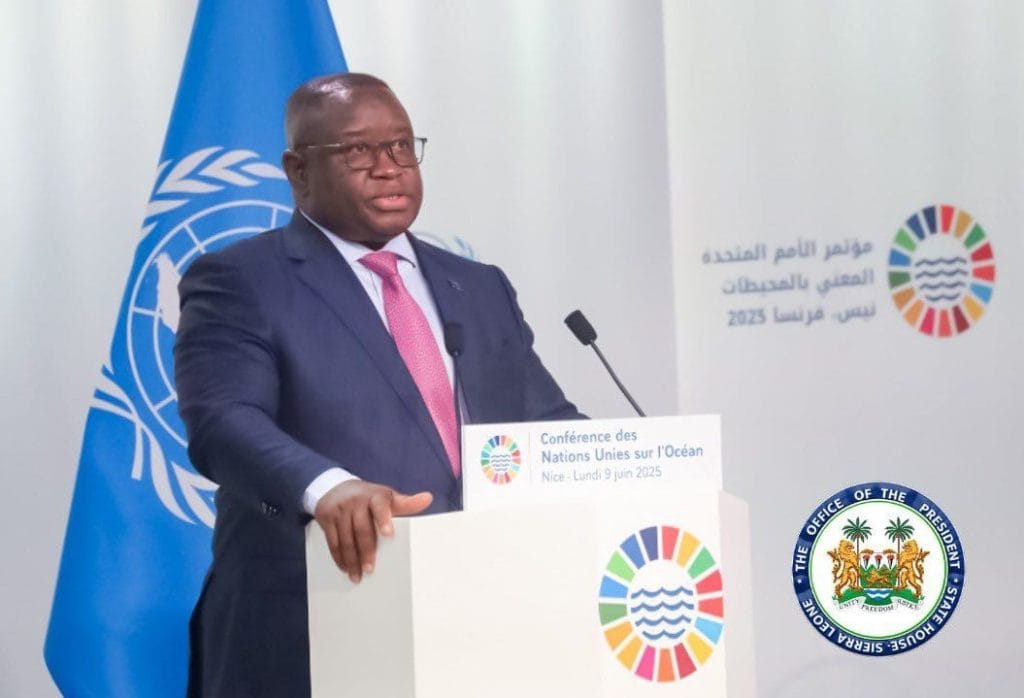President Julius Maada Bio has spotlighted Sierra Leone’s growing leadership in marine conservation with the announcement of three sweeping national initiatives at the third United Nations Ocean Conference (UNOC3), reinforcing the country’s commitment to safeguarding ocean health and promoting sustainable development.
Delivering his remarks to global leaders and environmental advocates gathered under the framework of UN General Assembly Resolution 77/242 (2023), President Bio positioned ocean protection as a national and regional priority. His address echoed the urgency of Sustainable Development Goal 14 — “Life Below Water” — and drew a direct link between ocean sustainability and the long-term prosperity of Sierra Leone and West Africa as a whole.
Describing the ocean as “the life source of our planet,” President Bio warned that its ecosystems are under unprecedented pressure. “The ocean is sending distress signals we can no longer afford to ignore,” he cautioned, pointing to the escalating triple threat of climate change, biodiversity loss, and pollution.
In response to these challenges, Sierra Leone is launching a trio of ambitious national policies:
- Expansion of Marine Protected Areas (MPAs): Aimed at safeguarding marine biodiversity, the extended MPAs will serve as safe havens for aquatic life, allowing degraded ecosystems to recover while supporting sustainable fisheries.
- Restoration of Mangrove Forests: The government plans to restore over 30,000 hectares of mangrove forests, recognizing their critical role in shoreline protection, carbon sequestration, and habitat provision for fish and other marine species.
- Plastic Pollution Reduction Campaign: A nationwide initiative seeks to cut plastic waste by 50% before the end of this decade, with a focus on community engagement, policy reform, and waste management infrastructure.
President Bio emphasized that these commitments are essential not only for ecological balance but for national development. “Ocean conservation is not just about the environment — it’s about economic survival,” he said. “Our fisheries, our coastal communities, our food systems all depend on healthy marine ecosystems.”
He also addressed the economic impact of illegal, unreported, and unregulated (IUU) fishing, which he described as a growing crisis in West African waters. For Sierra Leone, the cost is high — approximately \$50 million in lost revenue each year. That amount, he noted, could otherwise be invested in sectors like education, healthcare, and food security.
“Implementing SDG 14 is not a luxury — and certainly not optional. It is an urgent necessity,” President Bio stated, underscoring the interconnectedness of environmental sustainability and human development.
In closing, the president issued a strong appeal for international cooperation. “The future of our oceans cannot be secured in isolation,” he said. “Let us stand together to take bold, collective action for a sustainable and resilient blue planet.”
President Bio’s address not only reaffirmed Sierra Leone’s environmental priorities but also marked a pivotal moment in positioning the country as a regional standard-bearer in ocean stewardship. The announcement signals a broader shift in national policy toward integrated, long-term strategies that align ecological protection with sustainable economic growth.



